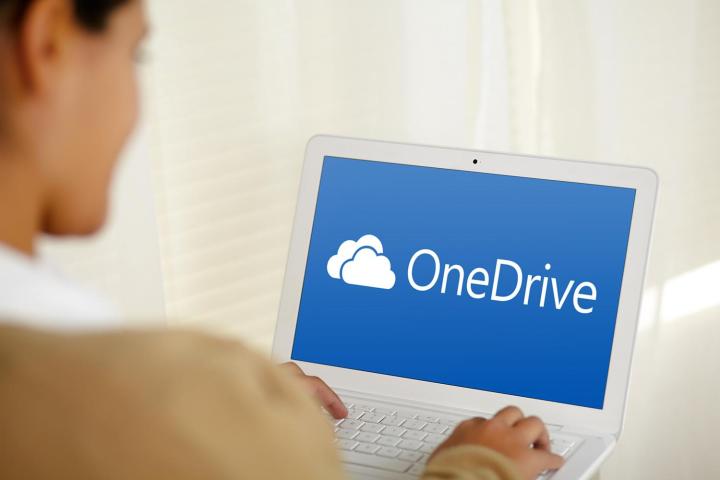
You may not, at first glance, understand why this is frustrating. So we were duped — a company changed its mind a year later because it was losing money — what else is new?
But that’s not the whole story. No, unlimited storage was a backhanded gift to Microsoft’s loyal customers a little less than a year ago. Before that, the storage plans were exactly as they are now, limited. Microsoft is flip-flopping more than a career politician, but why? To put a dent in Google’s market share, of course!
A shot in the dark at Google Drive
Instead of focusing on improving the overall OneDrive experience for its loyal customers, Microsoft was more concerned with stealing customers from Google, its main rival in cloud storage, despite the inevitable repercussions. Microsoft explicitly called it a “productivity war,” one that would — if Microsoft had its way — leave Google bleeding and Microsoft drowning in revenue. Unfortunately, however, as the company soon realized, it was not prepared for the fight ahead.
That’s because, despite offering up “unlimited” cloud storage, the OneDrive team didn’t take into account the fact that many of its subscribers would actually take advantage of a backup capacity without limits. In turn, when Microsoft realized some of its users were uploading, say, 75-terabytes’ worth of pirated movie collections, its jabs at Google just weren’t worth the cost.
However, considering the average Office 365 subscriber only used about 5.5GB of their designated unlimited OneDrive storage, those uploading their colossal unauthorized film catalogs were clearly in the minority.
Microsoft didn’t want to afford unlimited storage
In an official statement on the OneDrive blog, Redmond claimed it was compromising on “extreme backup scenarios” in order to refocus on collaborative productivity solutions. First of all, that’s not true. Secondly, it’s a cop-out to be expected from a company preemptively trying to save its own hide. Like with any storage solution, OneDrive’s purpose should be versatile. It shouldn’t be reliant on one person’s specific needs. It can be collaborative and capacious at the same time.
OneDrive should be collaborative and capacious at the same time.
A few rogue users uploading a ton of data doesn’t call for measures as drastic as omitting the unlimited tier altogether. The term unlimited implies that there are, in fact, no limits, no bounds. Of course a few people are going to take advantage of that. Microsoft’s sales projections should have taken that into account before increasing its storage options last year.
Microsoft isn’t some unsuspecting San Francisco start-up. It’s a multi-billion dollar corporation, assuredly with a number of highly qualified market research specialists. As such, it should know that going back on its word could inflict more damage on the company than losing a couple thousand dollars from a few Internet file hoarders.
Smaller companies are doing unlimited — so Microsoft can too
Ever heard of CrashPlan or BackBlaze? Kudos to you if you have. Admittedly, I’ve been living under a rock, so when I stumbled across these handy services, I was astonished. For $5 a month, you can get unlimited cloud storage from either of these companies. They’re not shying away from productivity either, making use of technological clichés like “When the world is your office, CrashPlan is your personal backup assistant.”
Cliché, but effective.
Despite securing coverage from major news outlets such as WSJ, NBC, etc., these companies are microscopic compared to Microsoft. Yet they can somehow afford to hand out unlimited storage at an even lower cost to their customers.
Obviously, they’re going to account for the select few who’ll back up every season of their favorite HBO programs, even if that equates to a few terabytes’ worth. But a cloud storage company proficient in sales is going to ignore the minority — no matter how rampant — in favor of the dominating customer base. Those who ignore the service for all but uploading a few gigabytes’ worth in documents. Those who help the company make a profit.
Borrowing Google’s market share
If nothing else is learned from all of this, Microsoft might finally discover that precautionary measures should be taken before launching monumental service changes. Instead of disregarding the consequences in favor of some healthy corporate competition, perhaps Redmond should take a step back at say, “Hey, if we advertise something as being unlimited, maybe we shouldn’t completely change the one thing people liked about our service just because it increases our operation expenses.”
Competition is good. If Microsoft wants to take down Google Drive, I say go for it. But don’t toy with your customers along the way. That’s not a permanent solution in the long-term goal of stealing market share. In fact, Microsoft didn’t steal Google’s market share at all. It simply borrowed it and swiftly decided to give it back. Unless, for some odd reason, you have a strong preference to use Microsoft Word over Google Docs, there’s little incentive to be a OneDrive subscriber anymore.
Microsoft has made a lot of progress lately. Windows 10 is great. The Surface Book is flying off store shelves. But perhaps its greatest theme, as of late, has been a supposed focus on a “cloud-first” future. That might be true if you’re an enterprise customer seeking cloud storage for a web platform, or for your thousands of employees. If you’re an individual, though, it seems Microsoft doesn’t care to be cloud-first at all.
Editors' Recommendations
- OneDrive is ruining my PC gaming setup
- It’s not just you — Microsoft admits its patches broke OneDrive
- OneDrive is getting stories, but it’s not what you expect
- Microsoft’s new Edge browser is great, but it’s missing one big feature
- Microsoft’s cloud gaming platform xCloud is built using Xbox One S hardware



